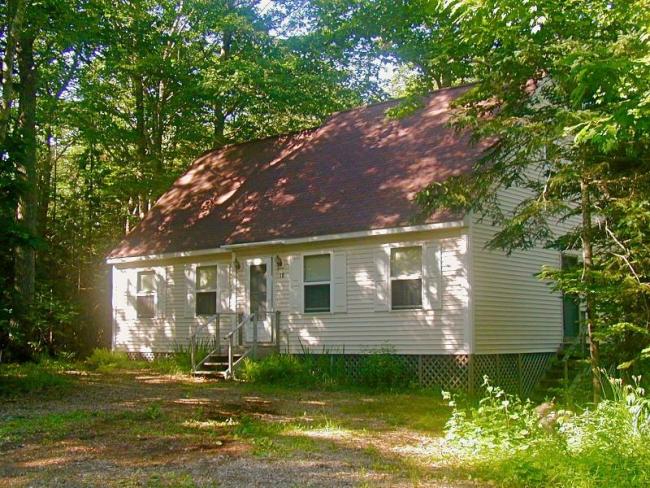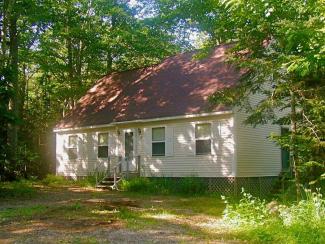Home Work - Money
Whenever I discuss home building with anyone the issue of money comes up and dominates the conversation, as though money is the only tool used for building. A few years ago, while calculating the actual cost basis of a project I was working on, I needed to know what the price would be for a home purchased in the prescribed manner. Here it is:
The decision to purchase a home is such a complicated business that some vital facts become obscured while contending with real estate brokers, building inspectors, lawyers, bankers, contractors and insurance companies during the process of buying your home. Let’s focus on a few of those vital facts.
First is the real cost of a home, in terms of work hours. As an example let’s use a three bedroom modular Cape Cod design on a modest lot in a nice subdivision. The price is $180,000. With the changes in the real estate market and house values these days, this is still an average price.
Let’s say you have worked hard and saved $20,000 for a down payment and you acquire a 20-year mortgage at 6% interest on the $160,000 principal. Your payment will be $1145.60 per month plus a few dollars for various fees that banks add on.
Some people stop and congratulate themselves at this point. They have found their home, they accept the monthly payment challenge, and settle in for the long haul of paying off the mortgage. That payoff, after 240 months, is about $275,000. Add in the down payment and “fees” and you have a total of approximately $300,000. Very sobering.
However here is where reality really takes a bite. To get that $300,000 you had to earn it. Before you paid the mortgage each month, even while you were saving up for the down payment, you were making payroll taxes and having other deductions removed from your paycheck. In order to have $300,000 available to purchase your home you had to earn over $400,000. That is financially brutal, and I may be underestimating that figure! Don’t forget to add your ordinary daily living expenses to the cost of paying for your home.
Now, I know there are accountant types out there who will talk about deductions and appreciation and “building equity” and all that. Those nebulous benefits are more than canceled out by ever-rising insurance premiums, maintenance costs, property taxes, and most recently the housing market collapse.
My point is that you will obligate yourself to pay a huge sum of money for your home that, ironically, won’t truly be yours until the last payment is made.
Take a deep breath because there is another frequently overlooked obligation you committed to when buying your home and it is just as disturbing. Let’s say you have a job at United Switch and Knob Company, Ltd. making $50,000 per year. That is your salary for putting in 40 hours per week with two weeks off for vacation, or 2000 hours at $25 per hour.
The $400,000 needed to buy your home, divided by $25, equals 16,000 hours of your labor, or eight solid years of work (16,000 hours divided by 2000 hours per year).
That is eight years of paying for absolutely nothing but the house! Well . . . actually house + interest + payroll taxes. No food, no car, no TV. Only house.
Back to the present: That was in 2009. You can plug in the numbers from your own real estate project to see how many hours of work your home will cost you.
Back then there was no Building Code Enforcement. Include that cost too.
Next time I’ll show the cost in hours of work and money for an owner built home.
United States
About this blog:
The Fixer Upper
HOME SWEET HOME was embroidered on a framed sampler the living room at my grandpa and grandma’s farmhouse up on the mountain where we lived long ago and far from here.
Those were the first words of wisdom I learned to read, write and understand. Looking back today, I realize how this inspiring motto guided me throughout my life’s work of building my own home . . . sweet and truly mine. That plus my collection of bumper sticker wisdom.
I grew up, left home and explored various careers until I became qualified to teach Industrial Arts at my hometown high school. My plan to have my own home was in motion. I bought a modest little fixer upper at the edge of town. My intention was to fix it up, add an addition, live there awhile to make sure everything worked, sell it and finally start building my own home. I figured I could get most everything done during summer vacation. I was young and optimistic.
I learned a great deal from that first building project. So much that I’ll have to tell you more.
Meanwhile: THERE’S NO PLACE LIKE HOME

























